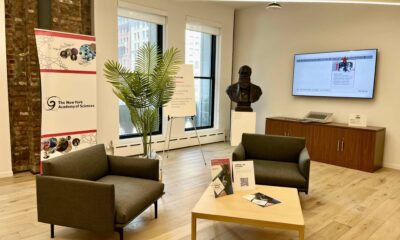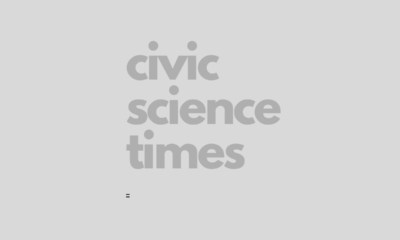People
Growing up in Science: Clinton Cave
Clinton Cave – “Protect your health, find mentorship, and help those around you. And just for the record, “You DO belong here.”
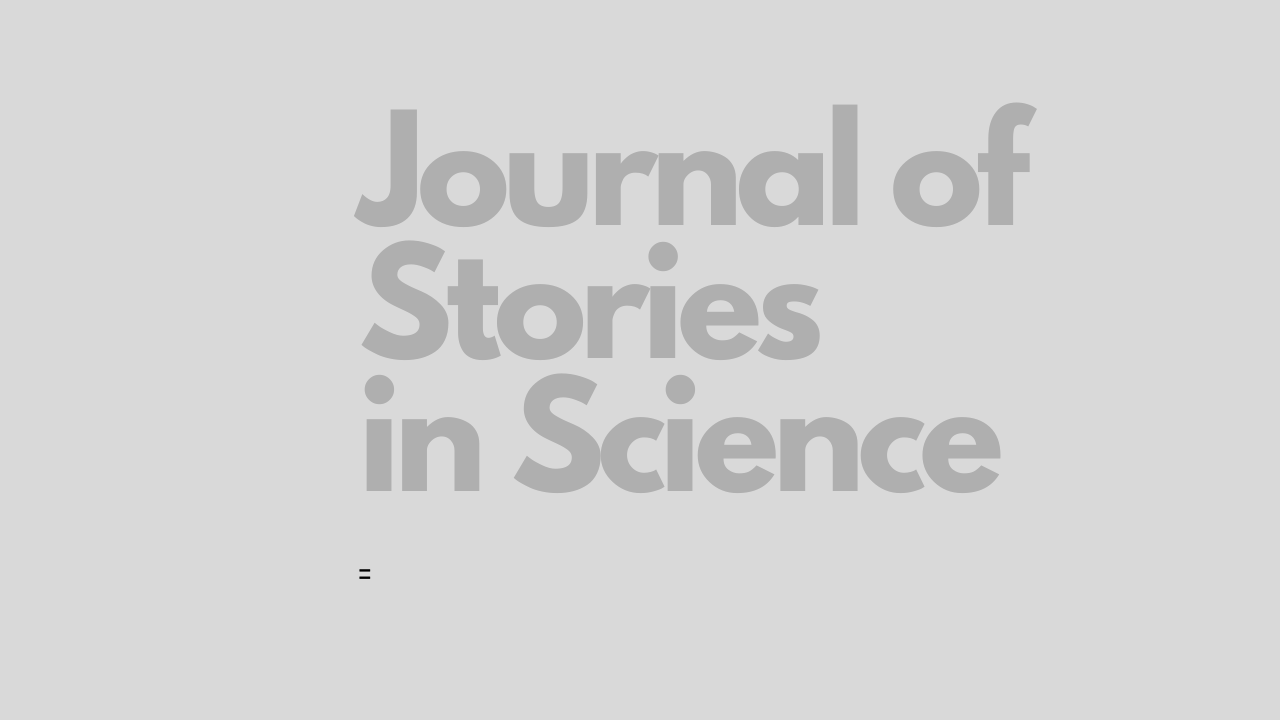
Growing up in Science: Clinton Cave
[su_boxbox title=”About”]Clinton Cave is an Assistant Professor of Neuroscience at Middlebury College. He arrived at Middlebury in 2018 after completing his Ph.D. in Neuroscience and post-doctoral fellowship at Johns Hopkins University. Clinton conducted post-baccalaureate research at the University of Colorado and holds a B.A. in Psychology from Yale University. As a graduate student in the laboratory of Shanthini Sockanathan, his research efforts expanded the known roles of GDE2, a cell-surface enzyme expressed in the nervous system. Using functional genetic approaches in mice, his work demonstrated that GDE2 also plays a crucial role for neuronal survival in the postnatal nervous system, heralding a new research direction for the lab. As an independent investigator, Clinton runs a laboratory at Middlebury College mentoring undergraduate researchers. His group examines the molecular mechanisms regulating embryonic progenitor patterning, neurogenesis, and cell fate decisions through the lens of GDE signaling. Clinton is a published author in Neuron, Development, Molecular Neurodegeneration, and his laboratory is supported by grants from the NSF and NIH. In 2020, Clinton was selected as a Next Generation Leader by the Allen Institute for Brain Science, highlighting his research accomplishments and his work to integrate open access datasets into the classroom.
Clinton is also dedicated educator, contributing to both the undergraduate and graduate curricula while at Johns Hopkins. At Middlebury, Clinton teaches four courses for the college’s increasingly popular neuroscience major. He teaches the lecture and laboratory sections of “Fundamentals of Cellular and Molecular Neuroscience” and “Fundamentals of Behavioral Neuroscience.” These are two core survey courses that cover multiple sub-disciplines within neuroscience. The former describes membrane physiology, receptor biology, synaptic plasticity, neural metabolism, glial biology, and offers laboratory components on whole cell electrophysiology, action potential conduction, sensory adaptation and fluorescence microscopy. The latter course assembles a range of topics from neural coding to behavioral genetics, addiction and memory, and provides laboratory sessions on comparative neuroanatomy, mouse and rat behavior, and human electroencephalography. Clinton also teaches an upper level elective on neurodevelopment, promoting students’ ability to engage with primary literature; as well as an elective on the history of neuroscience, a course that contrasts and contextualizes the lives of scientists versus the impact of their works. The story is re-published in collaboration with Growing up in Science.[/su_boxbox]
[su_boxnote note_color=”#c8c8c8″]Key Lessons
- Protect your health, find mentorship, and help those around you. And just for the record, “You DO belong here.”[/su_boxnote]
“Do I belong here?” That’s a question I frequently asked myself during freshman year of college. I had always done well academically in high school, and I entered college with a deep curiosity about the natural world. However, I found that my passion and enthusiasm for STEM was not reflected in my grades. My transition to college was very much the proverbial big fish moving from a small pond into the sea. At the time I hadn’t realized how much of my identity and self-worth was hinged on academic performance-far too much. I worked hard over the next two years to find my footing and right-the-ship as it were. And it worked! By the second semester of my junior year I was earning straight A’s again, with two courses even taken at the graduate level. But these self-imposed pressures to perform were not sustainable.
My senior year, I suffered a major depressive episode. I had my new-and-improved formula for academic success but couldn’t execute; a malaise and a pervasive darkness sank in around everything I tried to do. It strained friendships, frightened my family, and jeopardized my graduation. Many factors can lead to depression, and many of them are out of one’s control. My error was not asking for help when I needed it most. My recovery was enabled by supportive healthcare practitioners, professors, mentors, friends, and family that all helped me find the road forward. Though incredibly difficult at the time, these experiences now help me better empathize with my students as they navigate tumultuous times in their lives. I am enormously grateful to be able to pay forward the mentorship that I received and help my students recognize their value inside (and more importantly) outside of the classroom.
“Do you need any help?” That’s a question I’ve tried to ask others since college. As a technician working at the University of Colorado, I helped run a confocal core facility. My job involved teaching users about the different types of confocal microscopy, the care of use of the instruments, and helping them design an imaging experiment. This was a unique position because it allowed me to participate in a wide variety of research projects throughout the institution, and I thoroughly enjoyed interacting with new users and teaching them about microscopy. Being part of this vibrant community is also what motivated me to pursue my PhD. By my mid-twenties, I had a renewed self-awareness, new tools to manage my mental health, and had separated my self-worth from classroom performance.
I had landed a spot in a top PhD program, in a lab with a collegial, friendly atmosphere and a wonderfully supportive mentor doing research that I truly enjoyed. As I became a senior member of the lab, I was able to supervise the projects of several rotation students and two summer undergraduate students. Again, I found it extremely gratifying to be able to help them understand their projects, gain technical acumen, and mature as researchers. After graduating, I still had quite a bit of uncertainty about my next steps. I loved teaching but I wasn’t sure about remaining in academia. “Was I good enough?” “Do I have something to offer?”
Here again, I will stress the importance of finding mentors that are supportive, and will act as advocates for you. I was reminded that I had received a world-class education, my diverse experiences on multiple projects made me a very well rounded scientist capable of utilizing multiple techniques across different areas of neuroscience, and I myself was becoming a practiced teacher and advisor having supervised students and designed an undergraduate neuroscience course. All these experiences helped me become a better educator and be competitive for teaching-focused faculty positions. During my job search, (just 1.5 years into my post-doc) I was extended two tenure-track offers. Ultimately, everyone’s scientific and professional journey is different, and you don’t always know when things will lock into place. Protect your health, find mentorship, and help those around you. And just for the record, “You DO belong here.”
Metrics
Sessions
Total number of Sessions. A session is the period time a user is actively engaged with the page.
Visitors
Users that have had at least one session within the selected date range. Includes both new and returning users.
Page views
Pageviews is the total number of time the article was viewed. Repeated views are counted.
CivicSciTV
Spanish Edition: Science Communicator, Alessandro Strobbe, teaches scientific topics with humor

Alessandro Strobbe is a Peruvian science communicator with experience in public engagement through storytelling and creative writing. He also conducts research in science communication, critical thinking, and citizen science. He is most known as Doctor Trónico on social media, with his science popularization project for teaching science and skepticism with humor, using memes in social media. It has a range of 1-3 million prints per month, +500 creative writing columns, and +1000 graphic arts. His talk show Ciencia Picante, also uses language accessible to all audiences and creates an informal environment focused on the popularization of scientific studies and science engagement.
People
A Development enhancing tale with a microbial rich cocktail

Minisha Pereira
Dr. Minisha Pereira, Ph.D., is a Research scholar from Indian Council of Medical Research -National institute of Malaria Research, Field unit Goa, India. Her main area of Research is Vector biology which includes aspects of microbiology and molecular biology. Her recent publication titled “Characterization of midgut microbiome of Anopheles stephensi Liston” was published on March 2021 in Journal of vector borne diseases. The narrative below explores the story behind the unseen facts from her published work. She wants to bring the concept of her research in way which will be appreciated and also bring awareness to sustain public health. You can follow Dr. Pereira on Twitter @HMinisha.
Key Point
Spreading awareness among each other doesn’t need a lot support. But it necessitates a kind heart, a strong mind, and a never-fading goal. Let us identify the ways to save ourselves from vector-borne diseases and pests to live in harmony with nature and preserve the majority of useful insects. In these times of pandemic as we are living in anxiety and fear, Let us unite ourselves as beings and stop the spread of COVID far and near.[/su_boxnote]
With thoughts of COVID gushing in my mind, I was sitting down the lane next to my research lab during one evening time. Just then, I heard the conversations that got me stunned and startled. A conversation between two mosquitoes, sharing their knowledge and their thoughts. Curiosity and excitement gushed within me, leading to an elevated enthusiasm enforcing me to listen to their entire conversation.
The story was between two mosquito friends Anopheles stephensi and Anopheles subpictus who shared their thoughts about their current life status. So, without any delay, let us start the conversation replay…
An. subpictus: Hello!! My dear friend do you know we are at the brink of losing our significance because of COVID-19 outbreak globally??
An. stephensi: Do you feel so? My friends in scourges are already spreading Malaria. Luckily, the whole world around is so busy with the pandemic that they lost their focus on us.An. subpictus: Ohh great! But can we be as deadly as the virus?
An. stephensi: Deadly?? Stop misjudging yourself. We can be very fatal to all mankind, even though that’s not our intention. Our mission in life is to feast on their blood but, that cunning parasite (Plasmodium) that comes along during our bloody diet can cause sickly malaria. With chills and shakes, we can make an all-powerful man go crazy and also cold-hot-sweaty.
“A few decades ago, actually around 1987, our ancestors set their sight on the lovely state of Goa, just like tourists. We made such a Merry in Goa, dancing and feasting so much on the blood that hundreds of people were put down with malaria and some did not raise again. Yes! They were dead and gone. But then they took revenge on us and something horrible happened to us. These creatures, the humans, do not give up easily as they say.
An. subpictus: What did they do?
An. stephensi: They set up a big institute named ICMR-NIMR (Indian Council of Medical Research-National Institute of Malaria Research) to pack us off from Goa. The team NIMR chased us so much that we were so scared. Clever that they were, firstly they started learning everything about us, our lifestyles, our activities and behaviour. With their knowledge and expertise, they managed to attack our homes (breeding sites: artificial containers, wells, freshwater pools, stream margins, water storage containers, construction sites) affecting all our kids (immatures: larvae & pupae) thereby leaving us homeless using all different kinds of ways. If they had used DDT powder, nothing much would have happened to us as we can deal with it.
But they were destroying our homes, clearing the water, using bacterial powder where our kids thrive. And that was not enough, they started to release fish that would pick up our kids (larvae and pupae) and eat them in hundreds. (Mosquito cries).
An. subpictus: But then how did you manage to continue to survive?
An. stephensi: You see we may be small but we are powerful. Nature has created us much before man, who tends to relax and celebrate his successes. But we mosquitoes are serious about our living and keep doing our jobs even at night and produce batches of eggs every 48 hours and thus manage to survive being so potent and productive.
Hey! There is some big Office WHO in Switzerland where they discuss us. Can you imagine our power? They were saying our entire sister species put together; we globally kill more than 400 000 humans every year. We don’t spare pregnant ladies and young children. They are our first targets. But again, that clever man has an answer. They have started using insecticide-treated mosquito nets (ITNs) and preventive antimalarial medicines which are so effective that we are losing our sting power.
An. subpictus: Oh yea!! Then this Goa team trained their guns on me recently and started blaming me for spreading malaria parasites from sick to the healthy alongside you, stephensi. They have found this out using a special machine called PCR.
An. stephensi: Yes these ICMR guys have turned out to be a big threat to all of us the last few years. I even heard that a Ph.D. student Minisha (author) is also working on various kinds of bacteria in our tummy (midgut microbial diversity) which she is planning to use against malaria-causing parasite Plasmodium.
She has killed hundreds of us to study our bacteria. One of our friends who escaped her slaughter voiced out. This Minisha first gives them a special clean-up! She calls it surface sterilization of our babies and us and then cuts us open, reaches our stomach and crushes it, and puts it on some medium to multiply these bugs in our stomach and study them.
An. subpictus: Oh My God!! May their soul RIP!! What she must have done after that?
An. stephensi: I heard that she has recognized (identified) many of them and she is calling them by names. Using so many chemicals and complex methods she has identified bugs that are already dead in our stomach and fail to grow. I heard her calling this method as molecular technique Metagenomics. I have never heard of these difficult words. But, she says, her work can be very helpful for us too.
An. subpictus: How is that possible? On one side she is doing this to harm us and on the other, she is spreading this news? What is the basis? You don’t believe her blindly.
An. stephensi: She identified microbes from our friend’s midgut and matched them with those residing in the curing water habitat where our babies live and also matched them up with us who are jailed in her laboratory. I even heard her saying that some of these bugs (microbes) help us grow from babies (larvae and Pupae) to adults.
She claims that our friend’s breeding and their larvae feeding in the laboratory in tap water have different bacteria in their stomach than the one she identified from curing waters. Since field water is healthier and has more variety of these bacteria, I have started to lay my eggs in the field sites so that I have stronger offspring with greater immunity. Is not she crazy???
An. subpictus: Oh really? That’s cool!! I think even I should tell my friends to do the same.
An. stephensi: No doubt’s she is a crazy girl. She did not stop here. She even treated hundreds of our friends with an antibiotic (Tetracycline hydrochloride) and compared their life events with our friends from the field and Laboratory population. By doing this she studied the influence of the microbe on our life cycle. Our sisters who received this special treatment laid a fewer number eggs compared to others who did not. That means these tummy bacteria are important for us.
An. subpictus: But my friend, I am warning you because she may be doing something else to control us. It is possible that she may be doing this for the same purpose.
An. stephensi: whatever she does she will do to put us down. I heard she has got some bacteria common in water, our babies, and us.
She got different kinds of bacteria common in all the stages viz. water, larvae, pupae, male and female by a metagenomic approach. She also confirmed the presence of Pseudomonas along with few more microorganisms. She says she will try to manipulate them against us for vector control.
An. subpictus: oh no!! I think her research is going to be a big threat to all of us in Goa.
An. stephensi: yes indeed! This crazy budding Scientist is dangerous.
An. subpictus: what you think we should do now
An. stephensi: First let us go and show her our power. We both will go and bite her.
An. subpictus: No! We should avoid her. She may catch us and open our stomachs also.
An. subpictus: Then let us be smart and use her study in boosting our immunity just like humans, who are enhancing theirs against COVID-19 now days.
An. stephensi: How do we do that?
An. subpictus: Let us breed and drink water from curing water site, the water-rich in the microbiome. Her research showed an increase of Bacillus sp. in tap water while more diversity of microbiome in the curing water habitat. This will boost our immunity making us stronger and healthier.
An. stephensi: subpictus my friend, we had a very informative dialogue. I will surely inform all my friends and also see that they take the precautions.
An. subpictus: Yes indeed, in fact, I asked my friend to stay safe because I heard she is searching for some more mosquitoes for her further research. In short, humans are running away from the Coronavirus and we should from this mosquito girl. People do not understand that we don’t harm humans intentionally. Since we need blood for the sake of our eggs and the future. If that was not the need and requirement we wouldn’t have bitten them, unlike males who only feed on nectar for their survival.
An. stephensi: it’s the law of nature and no one can change that, ultimately, it’s the fight for survival and the fit shall survive.
An. subpictus: yes, so true I just hope now the pandemic subsides so that we regain our importance very soon.
An. stephensi: Don’t worry my friend, this autumn will be a new start for us and for all mankind let us hope for the same.
Ending the conversation, both the mosquitoes bid goodbye to each other and went away. As they dispersed, I was left pondering so many questions.
People
Growing up in Science: Anne Urai

Anne Urai
[su_boxbox title=”About”]Dr. Anne Urai received her undergraduate degree in cognitive neuroscience and philosophy at University College Utrecht in 2010, followed by a masters in brain and mind sciences at University College London and Ecole Normale Superieure in Paris. She then pursued her doctoral research with Tobias Donner at the Universitätsklinikum Hamburg-Eppendorf and University of Amsterdam, investigating how our previous choices bias the way we interpret later information, and how this process is affected by the confidence in our decisions. Her PhD was awarded the NVP brain and cognition thesis prize, specifically for its combination of interdisciplinary methodology and open science approaches. As a postdoctoral fellow in Anne Churchland’s lab at Cold Spring Harbor in New York, she studied the neurophysiology of decision-making using high-density neural recordings in the mouse brain. During this time she was a core member of the International Brain Laboratory, working with a global team of systems and computational neuroscientists to assess the reproducibility of systems neuroscience. She joined Leiden University in The Netherlands as an Assistant Professor in 2020, and was awarded tenure in 2022. Dr. Anne Urai’s research focuses on the neural basis of decision-making across mammalian species, and the interaction between learning and perception. A current focus of her work, funded by an NWO Veni grant, is on changes in neural and behavioral noise across the lifespan. The story below is co-published with Growing up in Science. [/su_boxbox]
[dropcap]I[/dropcap]had a careless childhood. I was good at school, but could never quite decide on my passions. I dropped high-school physics and chemistry in a streak of rebelliousness, only to realize my mistake a year later and catch up over the summer break. In my first semester at university, I randomly signed up for several interesting-sounded courses and got into cognitive neuroscience and philosophy.
I loved both of them, deciding on the spot that I would solve all of psychology by studying the brain. I spent my exchange semester traveling and eating my way through China, and another year working soul-crushing sales jobs, herding sheep in France and ultimately following my boyfriend to backpack through Asia. In a hot Moroccan internet cafe, I read that someone would pay my to live and study in London and Paris for two years, which seemed too good to true!
During my masters, I pursued my fascination for consciousness research (usually reserved for retiring professors) which mostly involved staring at EEG wiggles in windowless rooms. As a friendly collaborator was fixing my atrocious Matlab code, he off-handedly mentioned that Tobias Donner had just started a lab in Amsterdam – conveniently close to the city where said boyfriend had just started a new job. With my heart racing I approached Tobias at a meeting, didn’t faint, applied for a fellowship, and started my PhD in his group.
Having made most of my MSc thesis figures in Excel, I suffered serious imposter syndrome, but discovered I actually quite liked the technical and programming parts of the job. I passed through a serious crisis halfway through the PhD: my initial proposal turned out to be severely underpowered, psychology’s replication crisis was in full swing, my advisor’s lab had moved to another country, and I hadn’t published a single paper.
My advisor’s gentle persistence, many yoga classes and an adopted cat helped me follow through, and I decided to give postdoc life a chance. After getting stuck in a snowstorm when interviewing at CSHL, I accepted the offer to join the Churchland lab, got married, and defended my PhD within a frantic 6-months!
Coming from a background in psychology and cognitive neuroscience, it was both frightening and exhilarating to work with ‘real’ neuroscientists. I had to learn soldering, surgery and bluffing my way through genetics. I loved being a part of the (then early-stage) International Brain Lab, but started feeling terribly homesick after 1.5 years on Long Island.
Just as I prepared to spend the summer doing data analysis in NYC, Covid-19 hit. Bored at home in lockdown, I opened a long-forgotten ‘Jobs’ email folder and saw a vacancy for a combined psychology teaching and research position in The Netherlands. Within short succession, I found out I was pregnant, got the job, and learned the Churchland lab would be moving to California! Choosing my rainy, flat home country over sunshine, I hurried to finish experiments and returned home just in time for maternity leave.
So far, I have survived my first year of sleep-deprived parenthood and my assistant professorship, which has turned into a tenured position by happenstance (i.e. union negotiations). While getting settled into faculty life, I regularly experience existential dread and wonders if writing scientific papers is what I should be doing for the next 35 years. Since my postdoc in the US, I am increasingly concerned about the climate crisis, and I spend my evenings thinking about decarbonizing academia and worrying about the future.
Metrics
Sessions
Total number of Sessions. A session is the period time a user is actively engaged with the page.
Visitors
Users that have had at least one session within the selected date range. Includes both new and returning users.
Page views
Pageviews is the total number of time the article was viewed. Repeated views are counted.
-
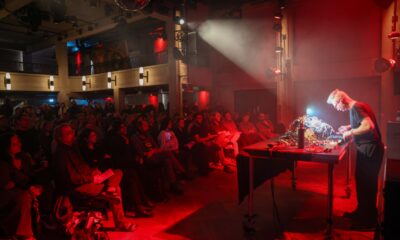
 CivicSciTV2 months ago
CivicSciTV2 months agoWhy public engagement is, and always has been and always will be, critical for science
-
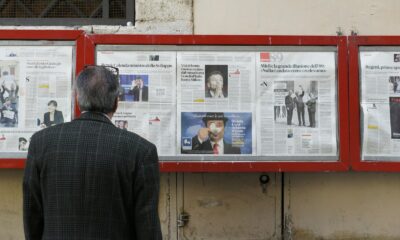
 Civic Science Times3 months ago
Civic Science Times3 months agoOpinion: The growing imperative for civic science journalism
-
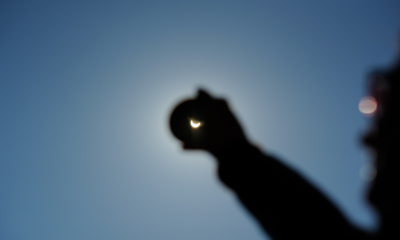
 CivicSciTV4 months ago
CivicSciTV4 months agoIn the path of totality, poems on citizen science, & civic science fellowships! CivicSciTV News 1/15
-

 Civic Science Times3 months ago
Civic Science Times3 months agoLiving Proof: An example of when civic science enters the beauty world
-

 CivicSciTV5 months ago
CivicSciTV5 months agoColleen Kelley’s mission is to build molecular literacy through imaginative chemistry comic books
-
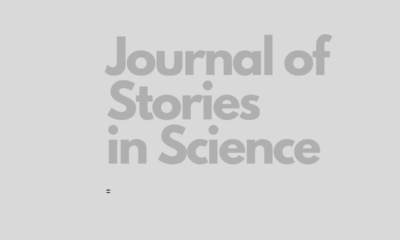
 People3 years ago
People3 years agoMy Career Path Following Water from the Mountain to the Sea and Across an Ocean
-

 Science Policy5 months ago
Science Policy5 months agoEmily Edwards: Public should have a front-row seat to the development of quantum science.
-
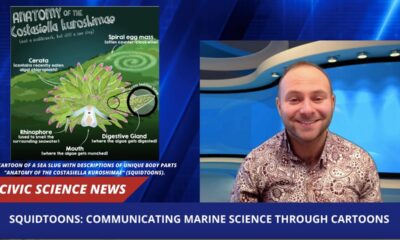
 CivicSciTV2 months ago
CivicSciTV2 months agoMaking science engagement fun, humor, science cartoons & SciTalk 2024! CivicSciTV News (Mar. 4)

